Connie Bennett, C.H.H.C. with Stephen T. Sinatra, M.D.
See book keywords and concepts |
 But, under the dietary supplement health and Education Act of 1994 (DSHEA), stevia can be sold as a "dietary supplement"; it's illegal, however, to promote it as a sweetener. (Such claims make a company's shipments subject to seizure, fines, or criminal prosecution.) Moreover, an FDA consumer safety officer told me that "the safety of stevia has been questioned by published studies. And no one has ever provided the FDA with adequate evidence that the substance is safe. But, under the dietary supplement health and Education Act of 1994 (DSHEA), stevia can be sold as a "dietary supplement"; it's illegal, however, to promote it as a sweetener. (Such claims make a company's shipments subject to seizure, fines, or criminal prosecution.) Moreover, an FDA consumer safety officer told me that "the safety of stevia has been questioned by published studies. And no one has ever provided the FDA with adequate evidence that the substance is safe. |
Hyla Cass
See book keywords and concepts |
 Labeling information is strictly limited by the dietary supplement health and Education Act (DSHEA), which the FDA passed in 1994. DSHEA created new guidelines for supplement makers about how they could market package, and label their products—and put strong limits on any claims made about the medicinal use of those products.
A supplement label can make "structure and function claims," which describe only the ways in which the nutrients affect the body's structure or function. But it can't state that the supplement prevents or treats any disease. Labeling information is strictly limited by the dietary supplement health and Education Act (DSHEA), which the FDA passed in 1994. DSHEA created new guidelines for supplement makers about how they could market package, and label their products—and put strong limits on any claims made about the medicinal use of those products.
A supplement label can make "structure and function claims," which describe only the ways in which the nutrients affect the body's structure or function. But it can't state that the supplement prevents or treats any disease. |
David Winston, RH(AHG), and Steven Maimes
See book keywords and concepts |
 In 1994, the dietary supplement health and Education Act (DSHEA) was passed in the United States. This legislation places herbal products in a clearly defined regulatory category of dietary supplements, along with a number of other products including vitamins, minerals, and amino acids. When the DSHEA was passed, the U.S. Food and Drug Administration (FDA) estimated that there were about four thousand dietary supplements on the market. After this law was passed, the number has increased dramatically to more than thirty thousand, with more than one thousand being added each year. In 1994, the dietary supplement health and Education Act (DSHEA) was passed in the United States. This legislation places herbal products in a clearly defined regulatory category of dietary supplements, along with a number of other products including vitamins, minerals, and amino acids. When the DSHEA was passed, the U.S. Food and Drug Administration (FDA) estimated that there were about four thousand dietary supplements on the market. After this law was passed, the number has increased dramatically to more than thirty thousand, with more than one thousand being added each year. |
Mike Adams, the Health Ranger
See article keywords and concepts |
 Let me make absolutely clear that the Reagan-Udall Foundation will in no way override, overturn or conflict with the dietary supplement health and Education Act. Nothing in this bill would have that effect.
Mr. ENZI. Yes, we took great pains to make certain there would be no conflict with DSHEA. Regarding foods, and dietary supplements are generally regulated as foods, the general directive of the Foundation is to identify holes in the evaluation of food safety and identify ways to address those deficiencies through collaborative research with industry.
Mr. HARKIN. Let me make absolutely clear that the Reagan-Udall Foundation will in no way override, overturn or conflict with the dietary supplement health and Education Act. Nothing in this bill would have that effect.
Mr. ENZI. Yes, we took great pains to make certain there would be no conflict with DSHEA. Regarding foods, and dietary supplements are generally regulated as foods, the general directive of the Foundation is to identify holes in the evaluation of food safety and identify ways to address those deficiencies through collaborative research with industry.
Mr. HARKIN. |
| My office has been inundated by calls from people throughout the country who believe that this legislation, specifically the provision establishing a Reagan-Udall Institute, will overturn the dietary supplement health and Education Act of 1994. That has not been my reading of the bill, but I wonder if other Senators have heard similar concerns?
Mr. HARKIN. Yes, I have received a good many calls as well. And, I have to say that I would be very concerned, as I know the Senator from Utah is, if anything in the bill we are considering, S. |
Craig Pepin-Donat
See book keywords and concepts |
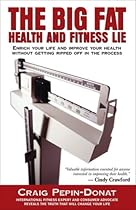 Then, in 1994, the dietary supplement health and Education Act (DSHEA) expanded the meaning of dietary supplements to include "a vitamin or mineral, an herb or other botanical, an amino acid, a dietary substance for use by man to supplement the diet by increasing the total dietary intake, or a concentrate, metabolite, constituent, extract, or combination of the preceding ingredients." The DSHEA also dramatically reduced the FDA control over dietary supplements. Then, in 1994, the dietary supplement health and Education Act (DSHEA) expanded the meaning of dietary supplements to include "a vitamin or mineral, an herb or other botanical, an amino acid, a dietary substance for use by man to supplement the diet by increasing the total dietary intake, or a concentrate, metabolite, constituent, extract, or combination of the preceding ingredients." The DSHEA also dramatically reduced the FDA control over dietary supplements. |
Mike Adams, the Health Ranger
See article keywords and concepts |
 KENNEDY: Let me make absolutely clear that the Reagan-Udall Foundation will in no way override, overturn or conflict with the dietary supplement health and Education Act. Nothing in this bill would have that effect.
SEN. ENZI: Yes, we took great pains to make certain there would be no conflict with DSHEA. Regarding foods, and dietary supplements are generally regulated as foods, the general directive of the Foundation is to identify holes in the evaluation of food safety and identify ways to address those deficiencies through collaborative research with industry.
SEN. KENNEDY: Let me make absolutely clear that the Reagan-Udall Foundation will in no way override, overturn or conflict with the dietary supplement health and Education Act. Nothing in this bill would have that effect.
SEN. ENZI: Yes, we took great pains to make certain there would be no conflict with DSHEA. Regarding foods, and dietary supplements are generally regulated as foods, the general directive of the Foundation is to identify holes in the evaluation of food safety and identify ways to address those deficiencies through collaborative research with industry.
SEN. |
Bill Sardi
See book keywords and concepts |
 The study was halted just prior to a vote in Congress over the dietary supplement health and Education Act. Was the study stopped for publicity effect? There was no explanation why there was an 18% relative increased risk for mortality among users of beta carotene supplements. Oddly, it was found the elevated mortality risk remained higher even 4 years after the end of the trial when no beta carotene supplements were in use. [New England Journal of Medicine 330:1029-35, 1994] map2 Percent of Adults Who Are Smokers by Race/Ethnicity,
ž 23.0% to 25.0%
ž More than 25. The study was halted just prior to a vote in Congress over the dietary supplement health and Education Act. Was the study stopped for publicity effect? There was no explanation why there was an 18% relative increased risk for mortality among users of beta carotene supplements. Oddly, it was found the elevated mortality risk remained higher even 4 years after the end of the trial when no beta carotene supplements were in use. [New England Journal of Medicine 330:1029-35, 1994] map2 Percent of Adults Who Are Smokers by Race/Ethnicity,
ž 23.0% to 25.0%
ž More than 25. |
Mike Adams, the Health Ranger
See article keywords and concepts |
 HATCH: My office has been inundated by calls from people throughout the country who believe that this legislation, specifically the provision establishing a Reagan-Udall Institute, will overturn the dietary supplement health and Education Act of 1994. That has not been my reading of the bill, but I wonder if other Senators have heard similar concerns?
SEN. HARKIN: Yes, I have received a good many calls as well. And, I have to say that I would be very concerned, as I know the Senator from Utah is, if anything in the bill we are considering, S. HATCH: My office has been inundated by calls from people throughout the country who believe that this legislation, specifically the provision establishing a Reagan-Udall Institute, will overturn the dietary supplement health and Education Act of 1994. That has not been my reading of the bill, but I wonder if other Senators have heard similar concerns?
SEN. HARKIN: Yes, I have received a good many calls as well. And, I have to say that I would be very concerned, as I know the Senator from Utah is, if anything in the bill we are considering, S. |
Benjamin H. Natelson, M.D.
See book keywords and concepts |
 The number of these products multiplied greatly after Congress passed the dietary supplement health and Education Act (DSHEA), a law that allows the sale of "natural" health products or nutraceuticals with only minimal government oversight. While DSHEA did legislate FDA oversight of these products, the rules governing their use are extremely liberal. Since evidence of effectiveness is not required, the only rule is that nutraceutical manufacturers can't make health claims about their products. The number of these products multiplied greatly after Congress passed the dietary supplement health and Education Act (DSHEA), a law that allows the sale of "natural" health products or nutraceuticals with only minimal government oversight. While DSHEA did legislate FDA oversight of these products, the rules governing their use are extremely liberal. Since evidence of effectiveness is not required, the only rule is that nutraceutical manufacturers can't make health claims about their products. |
Mike Adams, the Health Ranger
See article keywords and concepts |
 To reassure those who are interested in the dietary supplement health and Education Act, DSHEA, I wanted to take a moment to outline those changes. To reassure those who are interested in the dietary supplement health and Education Act, DSHEA, I wanted to take a moment to outline those changes. |
J. Douglas Bremner
See book keywords and concepts |
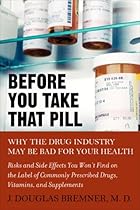 Dietary Supplement Health and Education Act (DSHEA) of 1994, which I describe in more detail in Chapter 18 (Vitamins and Supplements). Because of the very real risk of liver failure and possible death I do not recommend kava for the treatment of mood disorders. Kava is potentially lethal and should not be used.
OMEGA-3 FATTY ACIDS
There is one study I know of that has examined the effects of omega-3 fatty acids on symptoms of bipolar disorder.7 Thirty patients with bipolar disorder were randomized to receive four months of omega-3 fatty acids in the form of fish-oil capsules or placebo. Dietary Supplement Health and Education Act (DSHEA) of 1994, which I describe in more detail in Chapter 18 (Vitamins and Supplements). Because of the very real risk of liver failure and possible death I do not recommend kava for the treatment of mood disorders. Kava is potentially lethal and should not be used.
OMEGA-3 FATTY ACIDS
There is one study I know of that has examined the effects of omega-3 fatty acids on symptoms of bipolar disorder.7 Thirty patients with bipolar disorder were randomized to receive four months of omega-3 fatty acids in the form of fish-oil capsules or placebo. |
| Congressional passage of the dietary supplement health and Education Act (DSHEA), which was sponsored by Senator Hatch in 1994, removed regulatory authority that the FDA previously had over vitamins and supplements by providing manufacturers with a very large loophole. As long as they don't claim that their products cure a specific disease without showing evidence, they can make general health claims without providing backup. For instance, a manufacturer can say its product "promotes liver health" and advise someone with a liver problem to take it. |
Hyla Cass, M.D.
See book keywords and concepts |
 Labeling information is strictly limited by the dietary supplement health and Education Act (DSHEA), which the FDA passed in 1994. DSHEA created new guidelines for supplement makers about how they could market, package, and label their products—and put strong limits on any claims made about the medicinal use of those products.
A supplement label can make "structure and function claims," which describe only the ways in which the nutrients affect the body's structure or function. But it can't state that the supplement prevents or treats any disease. Labeling information is strictly limited by the dietary supplement health and Education Act (DSHEA), which the FDA passed in 1994. DSHEA created new guidelines for supplement makers about how they could market, package, and label their products—and put strong limits on any claims made about the medicinal use of those products.
A supplement label can make "structure and function claims," which describe only the ways in which the nutrients affect the body's structure or function. But it can't state that the supplement prevents or treats any disease. |
Joerg Gruenwald, Ph.D.
See book keywords and concepts |
 Please remember that in the United States, herbal products must be in compliance with the dietary supplement health and Education Act of 1994, which stipulates that they may not be marketed for the diagnosis, treatment, cure, or prevention of any disease. The monographs in PDR for Herbal Medicines do not discuss claims made for any proprietary herbal preparation. They merely report general findings on generic botanicals and their extracts.
Abrus Precatorius
Jequirity
DESCRIPTION
Medicinal Parts: The medicinal parts are the leaves, roots, and seeds. Please remember that in the United States, herbal products must be in compliance with the dietary supplement health and Education Act of 1994, which stipulates that they may not be marketed for the diagnosis, treatment, cure, or prevention of any disease. The monographs in PDR for Herbal Medicines do not discuss claims made for any proprietary herbal preparation. They merely report general findings on generic botanicals and their extracts.
Abrus Precatorius
Jequirity
DESCRIPTION
Medicinal Parts: The medicinal parts are the leaves, roots, and seeds. |
Leslie Taylor, ND
See book keywords and concepts |
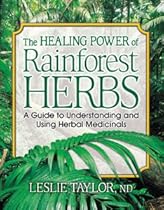 This allowed stevia to be sold as a dietary supplement under legislation called the dietary supplement health and Education Act of 1994. The FDA, in one of its more politically incorrect debacles, has ruled that
Traditional Preparation stevia is presumed safe as a dietary supplement but is considered unsafe as a food additive. This incongruity openly protects the profit margins of the "sweetener giants. This allowed stevia to be sold as a dietary supplement under legislation called the dietary supplement health and Education Act of 1994. The FDA, in one of its more politically incorrect debacles, has ruled that
Traditional Preparation stevia is presumed safe as a dietary supplement but is considered unsafe as a food additive. This incongruity openly protects the profit margins of the "sweetener giants. |
Mike Adams, the Health Ranger
See article keywords and concepts |
 That, by the way is S-3546, the Dietary Supplement and Non-Prescription Drug Consumer Act.
The dietary supplement health and Education Act is under a state of seize. This would be yet another means. No one is learning about that in health food stores for the simple reason that the U.S. Vitamin Trade Associations are being effectively manipulated from the top down by pharmaceutical interests that have gotten their tentacles into the industry. That, by the way is S-3546, the Dietary Supplement and Non-Prescription Drug Consumer Act.
The dietary supplement health and Education Act is under a state of seize. This would be yet another means. No one is learning about that in health food stores for the simple reason that the U.S. Vitamin Trade Associations are being effectively manipulated from the top down by pharmaceutical interests that have gotten their tentacles into the industry. |
Kevin Trudeau
See book keywords and concepts |
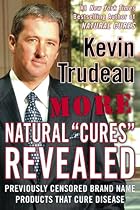 This is the background for the Bush administration's attack on the dietary supplement health and Education Act. The key legislation protecting the rights of the American people for free access to natural therapies and to freedom of health choice. If this fundamental human right to natural health is taken away the health of billions of people will be compromised and tens of millions of them will pay the ultimate price for generations to come.
This public health notice was written by a medical doctor! I wholeheartedly support Dr. Rath's work and courage.
I WAS RIGHT! This is the background for the Bush administration's attack on the dietary supplement health and Education Act. The key legislation protecting the rights of the American people for free access to natural therapies and to freedom of health choice. If this fundamental human right to natural health is taken away the health of billions of people will be compromised and tens of millions of them will pay the ultimate price for generations to come.
This public health notice was written by a medical doctor! I wholeheartedly support Dr. Rath's work and courage.
I WAS RIGHT! |
Mark Blumenthal
See book keywords and concepts |
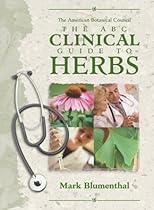 Public Law 103-417: dietary supplement health and
Education Act of 1994. Washington, DC: 103rd Congress of the United
States; 1994. USC. See: United States Congress.
Vannini L, Samuelly R, Coffano M, Tibaldi L. Study of the pupillary reflex after anthocyanoside administration. Boll Ocul 1986;65:11-2.
Wang H, Cao G, Prior R. Oxygen radical absorbing capacity of anthocyanins. JAgric
FoodChem 1997;45:304-309. Wichtl M, Bisset NG (eds.). Herbal Drugs and Phytopharmaceuticals: A Handbook for
Practice on a Scientific Basis. Stuttgart, Germany: Medpharm Scientific Publishers;
1994;351-2. Public Law 103-417: dietary supplement health and
Education Act of 1994. Washington, DC: 103rd Congress of the United
States; 1994. USC. See: United States Congress.
Vannini L, Samuelly R, Coffano M, Tibaldi L. Study of the pupillary reflex after anthocyanoside administration. Boll Ocul 1986;65:11-2.
Wang H, Cao G, Prior R. Oxygen radical absorbing capacity of anthocyanins. JAgric
FoodChem 1997;45:304-309. Wichtl M, Bisset NG (eds.). Herbal Drugs and Phytopharmaceuticals: A Handbook for
Practice on a Scientific Basis. Stuttgart, Germany: Medpharm Scientific Publishers;
1994;351-2. |
Ray Strand, M.D.
See book keywords and concepts |
 Therefore, some manufacturers began marketing herbal medicines as "nutritional supplements"—a legislative loophole that allowed products with no proven efficacy to be sold as long as the manufacturers made no claims on the product label.
The dietary supplement health and Education Act of 1994 (DSHEA) also classified herbs as nutritional supplements. Again, the labeling of dietary supplements could carry no claims of therapeutic benefit. Therefore, manufacturers had to market herbs as benefiting a natural body function and not as a treatment for a disease process. Therefore, some manufacturers began marketing herbal medicines as "nutritional supplements"—a legislative loophole that allowed products with no proven efficacy to be sold as long as the manufacturers made no claims on the product label.
The dietary supplement health and Education Act of 1994 (DSHEA) also classified herbs as nutritional supplements. Again, the labeling of dietary supplements could carry no claims of therapeutic benefit. Therefore, manufacturers had to market herbs as benefiting a natural body function and not as a treatment for a disease process. |
Heather Boon, BScPhm, PhD and Michael Smith, BPharm, MRPharmS, ND
See book keywords and concepts |
 The United States of America Herbal products in the United States are regulated as "dietary supplements" as defined by The dietary supplement health and Education Act of 1994 (DSHEA). This definition also encompasses nutritional supplements such as vitamins, minerals, amino acids and botanical medicines. Companies marketing "dietary supplements" cannot make specific therapeutic claims regarding their products (i.e., about using them to diagnose, prevent, mitigate, treat or cure a specific disease. The United States of America Herbal products in the United States are regulated as "dietary supplements" as defined by The dietary supplement health and Education Act of 1994 (DSHEA). This definition also encompasses nutritional supplements such as vitamins, minerals, amino acids and botanical medicines. Companies marketing "dietary supplements" cannot make specific therapeutic claims regarding their products (i.e., about using them to diagnose, prevent, mitigate, treat or cure a specific disease. |
Mark Blumenthal
See book keywords and concepts |
 DSHEA. See: dietary supplement health and Education Act of 1994. Eisenberg DM. Advising patients who seek alternative medical therapies. Ann Intern
Afc/1997;127(l):61-9. Eisenberg DM, Kessler RC, Van Rompay MI, Kaptchuk TJ, Wilkey SA, Appel, S,
Davis RB. Perceptions about complementary therapies relative to conventional therapies among adults who use both: results from national survey. Ann Int Med.
2001;135:344-51.
Eisenberg DM, Davis RB, Ettner SL, et al. Trends in alternative medicine use in the
United States, 1990-1997: results of a follow-up national survey. JAMA
1998;280:1569-1575. DSHEA. See: dietary supplement health and Education Act of 1994. Eisenberg DM. Advising patients who seek alternative medical therapies. Ann Intern
Afc/1997;127(l):61-9. Eisenberg DM, Kessler RC, Van Rompay MI, Kaptchuk TJ, Wilkey SA, Appel, S,
Davis RB. Perceptions about complementary therapies relative to conventional therapies among adults who use both: results from national survey. Ann Int Med.
2001;135:344-51.
Eisenberg DM, Davis RB, Ettner SL, et al. Trends in alternative medicine use in the
United States, 1990-1997: results of a follow-up national survey. JAMA
1998;280:1569-1575. |
| Public Law 103-417: dietary supplement health and
Education Act of 1994. Washington, DC: 103rd Congress of the United States.
1994.
United States Food and Drug Administration (U.S. FDA). Code of Federal Regulations, Title 21, Part 182 - Substances Generally Recognized as Safe. Washington, DC: Office of the Federal Register National Archives and Records Administration; 1998;427-433.
United States Pharmacopeia (USP 24th Revision) The National Formulary (NF 19th Edition). Rockville, MD: United States Pharmacopeial Convention, Inc.; 1999;2533-2534. |
| Public Law 103-417: dietary supplement health and
Education Act of 1994. Washington, DC: 103rd Congress of the United States;
1994.
USC. See: United States Congress.
Vorberg G. Therapy of climacteric complaints. Z Allgemeinmed 1984; 60:626-9. Warnecke G. Influencing menopausal symptoms with a phytotherapeutic agent.
Successful therapy with Cimicifuga mono-extract. Med Welt 1985;36(2):871—4. WHO. See: World Health Organization.
World Health Organization. Regulatory Status of Herbal Medicines: A Worldwide Review. |
volker schulz and Rudolf Hansel
See book keywords and concepts |
 Pharmanex, the manufacturer of the original red yeast rice preparation, Cholestin, appealed the ruling, and in June of 1998, a federal judge in the state of Utah ruled that the product was not a drug but a dietary supplement (food) as defined in the dietary supplement health and Education Act of 1994 (Skinner, 1998). The FDA subsequently appealed the decision, but pending the outcome of litigation, red yeast rice is still being marketed as a dietary supplement. Pharmanex, the manufacturer of the original red yeast rice preparation, Cholestin, appealed the ruling, and in June of 1998, a federal judge in the state of Utah ruled that the product was not a drug but a dietary supplement (food) as defined in the dietary supplement health and Education Act of 1994 (Skinner, 1998). The FDA subsequently appealed the decision, but pending the outcome of litigation, red yeast rice is still being marketed as a dietary supplement. |
Mark Blumenthal
See book keywords and concepts |
 Public Law 103-417: dietary supplement health and Education Act of 1994. Washington, DC: 103rd Congress of the United States; 1994.
USC. See: United States Congress.
Wagner H, Proksch A, Vollmar A, Kreutzkamp B, Bauer J. In vitro phagocytosis stimulation by isolated plant materials in a chemoluminescence-phagocytosis model [in German]. Planta Med 1985a Apr;(2): 139-44.
Wagner H, Kreutzkamp B, Jurcic K. The alkaloids of Uncaria tomentosa and their phagocytosis-stimulating action [in German). Planta Med 1985b Oct;(5):4l9-23.
Williams JE. Public Law 103-417: dietary supplement health and Education Act of 1994. Washington, DC: 103rd Congress of the United States; 1994.
USC. See: United States Congress.
Wagner H, Proksch A, Vollmar A, Kreutzkamp B, Bauer J. In vitro phagocytosis stimulation by isolated plant materials in a chemoluminescence-phagocytosis model [in German]. Planta Med 1985a Apr;(2): 139-44.
Wagner H, Kreutzkamp B, Jurcic K. The alkaloids of Uncaria tomentosa and their phagocytosis-stimulating action [in German). Planta Med 1985b Oct;(5):4l9-23.
Williams JE. |
Kevin Trudeau
See book keywords and concepts |
 This is the background for the Bush administration's attack on the dietary supplement health and Education Act. The key legislation protecting the rights of the American people for free access to natural therapies and to freedom of health choice. If this fundamental human right to natural health is taken away the health of billions of people will be compromised and tens of millions of them will pay the ultimate price for generations to come.
• • •
The bottom line is that there ARE natural, inexpensive, safe cures for almost every disease. This is the background for the Bush administration's attack on the dietary supplement health and Education Act. The key legislation protecting the rights of the American people for free access to natural therapies and to freedom of health choice. If this fundamental human right to natural health is taken away the health of billions of people will be compromised and tens of millions of them will pay the ultimate price for generations to come.
• • •
The bottom line is that there ARE natural, inexpensive, safe cures for almost every disease. |
Elaine Feuer
See book keywords and concepts |
 Under the dietary supplement health and Education Act, manufacturers are allowed to distribute reprints of preliminary scientific studies that describe potential health benefits of supplements, and can make nutritional claims such as "Vitamin A is necessary for good vision."
Less than two months after the enactment of the dietary supplement health and Education Act, the FDA violated the new law by conducting raids against clinics, labs, and distributors of nutritional supplements without giving the companies the ten day notice required by Congress. Under the dietary supplement health and Education Act, manufacturers are allowed to distribute reprints of preliminary scientific studies that describe potential health benefits of supplements, and can make nutritional claims such as "Vitamin A is necessary for good vision."
Less than two months after the enactment of the dietary supplement health and Education Act, the FDA violated the new law by conducting raids against clinics, labs, and distributors of nutritional supplements without giving the companies the ten day notice required by Congress. |
| This from a man who had professed in 1993 that "The public can be assured that access [to dietary supplements] will not be altered" by the FDA.
THE dietary supplement health AND EDUCATION ACT OF 1994
It was not until October of 1994 that both the Senate and Congress approved a compromise bill, the dietary supplement health and Education Act of 1994. which guaranteed consumers' access to dietary supplements but also preserved the FDA's right to regulate claims used to sell them. |
volker schulz and Rudolf Hansel
See book keywords and concepts |
 Dietary Supplement Health and Education Act of 1994 (DSHEA) (Blumenthal and Israelsen, 2000). In Canada, as note above, medicinal teas can be regulated as Natural Health Products and contain on their labels government-recognized claims and benefits.
H23I Medicinal Teas and Their Actions
Tea infusions can be prepared from single herbs or from herb mixtures. About 1000 single-herb teas and blends have been approved in Germany (Hiller, 1995). Common medicinal tea herbs and their indications are listed in Table 1.3 and 1.4. Dietary Supplement Health and Education Act of 1994 (DSHEA) (Blumenthal and Israelsen, 2000). In Canada, as note above, medicinal teas can be regulated as Natural Health Products and contain on their labels government-recognized claims and benefits.
H23I Medicinal Teas and Their Actions
Tea infusions can be prepared from single herbs or from herb mixtures. About 1000 single-herb teas and blends have been approved in Germany (Hiller, 1995). Common medicinal tea herbs and their indications are listed in Table 1.3 and 1.4. |












